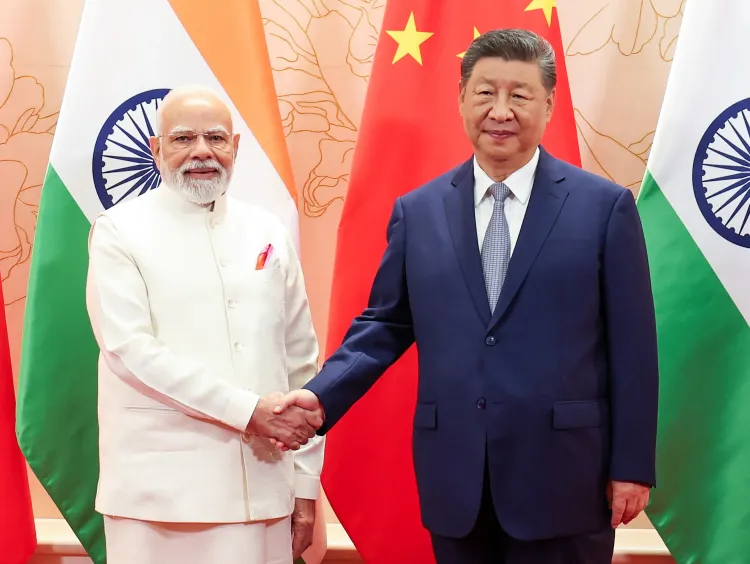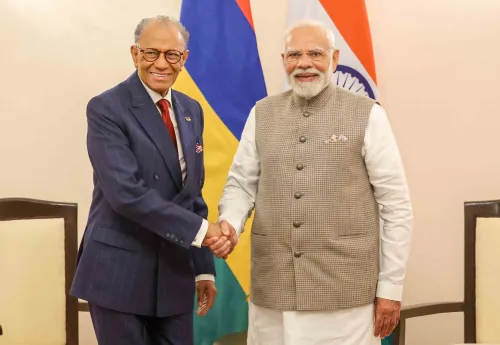Can Realism and Caution Propel Warming India-China Ties?

Synopsis
Key Takeaways
- Realism and caution are essential in diplomatic efforts.
- Border disengagement and economic discussions are critical.
- People-to-people ties have seen a positive shift.
- Strategic challenges remain a concern for both nations.
- Future relations depend on managing emerging issues effectively.
Sofia, Sep 16 (NationPress) The recent diplomatic interactions between India and China cannot be considered a complete reset, as numerous strategic, security, and economic hurdles continue to challenge the thaw in diplomatic relations, according to a report released on Tuesday. As both nations navigate diplomatic activities, realism and caution should be the guiding principles for the upcoming phase aimed at enhancing the warming ties.
The renewal of diplomatic discussions between India and China has resulted in agreements concerning critical components of their bilateral relationship, including border disengagement and talks regarding the potential revival of economic connections and Foreign Direct Investment (FDI), as reported by Modern Diplomacy. These developments indicate a thaw in the ties that have been strained since the Galwan clashes in 2020.
Efforts to restore diplomatic relations have been bolstered through enhanced cooperation in people-to-people connections, hydrological data sharing, and cross-border connectivity, following a meeting between Prime Minister Narendra Modi and President Xi Jinping during the BRICS Summit in Kazan last October.
Relations between the two nations have improved, particularly with India resuming the issuance of tourist visas for Chinese nationals for the first time in five years. In March, China lifted visa restrictions on Indian nationals after both countries announced the resumption of direct air travel. Such measures facilitate increased interactions in tourism, academic, and cultural exchange.
The report highlights that the recent diplomatic engagement between India and China is far from a reset. There are significant strategic, security, and economic challenges that complicate the thaw in diplomatic relations. Border tensions could escalate due to any misstep from either party, and any disengagement risks being replaced by escalation. Additionally, India's reliance on Chinese imports presents an economic vulnerability that Beijing could exploit amid any new conflict. The same concerns apply to hydrological data sharing, which was affected during the Doklam standoff. Moreover, reintroducing Chinese FDI and economic links carries national security risks that must be carefully evaluated, as noted by Rahul Karan Reddy and Tridivesh Singh Maini in Modern Diplomacy.
The report also emphasizes that new challenges, such as the Dalai Lama’s succession issue and the troubling developments related to China’s Medong County dam, could further complicate relations, posing significant downstream implications for Indian states in the Northeast. Even efforts in para-diplomacy are overshadowed by concerns regarding China’s influence operations and data security.
Consequently, the report underlines the importance of viewing advancements in non-confrontational areas, such as people-to-people connections and para-diplomacy initiatives, as small but meaningful steps toward restoring trust and balance.
Further progress should focus on the core interests and concerns of both nations, the authors assert.
The report concludes, stating that with the potential for para-diplomacy remaining open due to the progress made, caution and realism must steer the next phase of efforts to enhance the warming ties.










